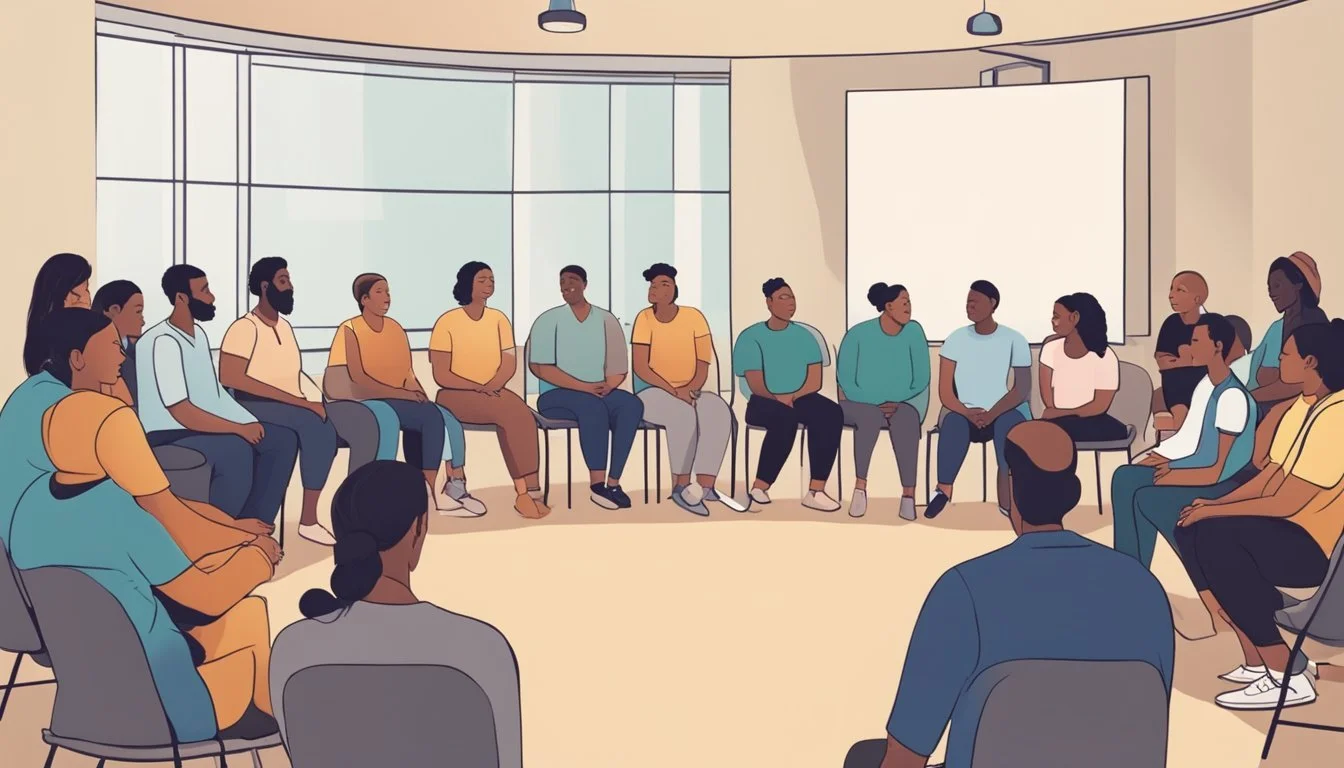7 Strategies for Emotional Recovery After Psychopathic Abuse
Healing and Moving Forward
Experiencing psychopathic abuse can leave deep emotional scars that take time and effort to heal. The aftermath often involves grappling with a shattered sense of reality, trust issues, and lingering trauma. Recovery requires understanding the nature of psychopathic manipulation and its effects on victims.
Implementing effective strategies is crucial for survivors to regain their emotional well-being and rebuild their lives after psychopathic abuse. This article explores seven practical approaches that can aid in the recovery process. These strategies aim to empower survivors, restore self-esteem, and promote healing from the psychological damage inflicted by a psychopathic abuser.
1) Seek Professional Therapy
Professional therapy is a crucial step in recovering from psychopathic abuse. A trained therapist can provide valuable guidance and support throughout the healing process.
Therapists specializing in trauma and abuse can help survivors understand the impact of their experiences. They offer tools and techniques to manage emotions, reduce anxiety, and rebuild self-esteem.
Cognitive-behavioral therapy (CBT) is often effective for processing traumatic experiences. It helps individuals identify and change negative thought patterns resulting from abuse.
Eye Movement Desensitization and Reprocessing (EMDR) is another therapeutic approach that can be beneficial. This method helps process traumatic memories and reduce their emotional impact.
Group therapy sessions can provide a supportive environment for survivors to connect with others who have similar experiences. Sharing stories and coping strategies can be empowering and validating.
Online therapy options are available for those who prefer remote sessions or have limited access to in-person services. These platforms offer flexibility and convenience while providing professional support.
2) Join Support Groups
Support groups play a crucial role in emotional recovery after psychopathic abuse. These groups provide a safe space for survivors to share their experiences and feelings with others who understand their pain.
Joining a support group can help break the isolation that often accompanies abuse. Survivors can connect with people who have faced similar challenges, fostering a sense of community and belonging.
Support groups offer validation and emotional support. Hearing others' stories can help survivors realize they are not alone in their struggles. This shared understanding can be incredibly healing.
Many support groups provide valuable resources and information about psychopathic abuse. Members can learn coping strategies, self-care techniques, and ways to rebuild their lives from those who have been through similar experiences.
Both in-person and online support groups are available. Online groups can be particularly helpful for those who live in remote areas or have difficulty attending in-person meetings. Some survivors find comfort in the anonymity of online groups.
Regular participation in support groups can boost confidence and self-esteem. As survivors share their progress and support others, they often experience personal growth and empowerment.
3) Practice Self-compassion
Self-compassion is a crucial element in healing from psychopathic abuse. It involves treating oneself with kindness and understanding, especially during difficult times.
Survivors can begin by acknowledging their pain and suffering without judgment. This recognition validates their experiences and emotions, countering the self-doubt often instilled by abusers.
Practicing self-compassion means speaking to oneself with gentleness and care. Survivors can replace self-critical thoughts with supportive ones, much like they would comfort a close friend.
Engaging in self-care activities is another form of self-compassion. This might include taking relaxing baths, journaling, or spending time in nature.
Mindfulness meditation can help cultivate self-compassion. It allows individuals to observe their thoughts and feelings without getting caught up in them.
Self-compassion also involves recognizing that imperfection is part of the human experience. Survivors can remind themselves that they are not alone in their struggles.
By embracing self-compassion, survivors create a nurturing internal environment. This fosters emotional healing and helps rebuild self-esteem damaged by psychopathic abuse.
4) Set Boundaries
Setting clear boundaries is crucial for emotional recovery after psychopathic abuse. Survivors need to establish firm limits on acceptable behavior from others, including the abuser and those in their support network.
This process involves clearly communicating personal needs and expectations. Survivors should express what they will and will not tolerate in relationships moving forward.
Implementing boundaries may require ending contact with the abuser and limiting interactions with unsupportive individuals. It's important to be consistent in enforcing these limits to protect one's well-being.
Setting internal boundaries is equally vital. This includes recognizing and respecting one's own emotional limits and learning to say "no" when necessary.
Boundaries help create a sense of safety and control, which are often compromised during abusive relationships. They allow survivors to rebuild trust in themselves and others at a comfortable pace.
While initially challenging, maintaining healthy boundaries becomes easier with practice. It's a key step in reclaiming personal power and preventing future exploitation.
5) Develop a Safety Plan
Creating a safety plan is crucial for individuals recovering from psychopathic abuse. This strategy helps survivors prepare for potential risks and ensures they have resources available if needed.
A comprehensive safety plan should include identifying safe places to go in case of emergency. This might be a friend's house, a family member's home, or a local shelter.
It's important to gather essential documents and keep them in a secure, easily accessible location. These may include identification, financial records, and legal papers.
Establishing a support network is vital. Designate trusted friends or family members who can be contacted for help or emotional support.
The safety plan should also include emergency contact numbers, such as local law enforcement, domestic violence hotlines, and legal aid services.
For those living with an abuser, developing a code word or signal to alert others of danger can be lifesaving. This allows discreet communication of the need for immediate assistance.
Practicing self-care and emotional regulation techniques is an essential part of the safety plan. These strategies help maintain mental and emotional stability during challenging times.
6) Engage in Mindfulness Exercises
Mindfulness exercises can be powerful tools for emotional recovery after psychopathic abuse. These practices help individuals reconnect with their bodies and emotions in the present moment.
One effective technique is the body scan meditation. This involves systematically focusing attention on different parts of the body, noticing any sensations without judgment.
Mindful breathing is another simple yet potent exercise. By concentrating on the breath, survivors can anchor themselves in the present and reduce anxiety.
Practicing mindful observation of thoughts can help break negative thought patterns. This involves noticing thoughts as they arise without getting caught up in them.
Mindful walking can combine physical activity with awareness. Focusing on each step and the sensations of movement can help ground survivors in their bodies.
Incorporating brief mindfulness exercises throughout the day can be beneficial. Even a few minutes of focused attention can help manage stress and emotional reactivity.
Regular mindfulness practice can enhance self-awareness and emotional regulation. This can be particularly helpful for survivors dealing with trauma-related symptoms.
7) Focus on Personal Goals
Setting personal goals can be a powerful tool for emotional recovery after psychopathic abuse. Survivors can regain a sense of control and purpose by identifying areas for growth and improvement.
Goals may relate to physical health, career aspirations, educational pursuits, or creative endeavors. It's important to choose specific, measurable objectives that align with one's values and interests.
Breaking larger goals into smaller, manageable steps can make progress feel more attainable. Tracking accomplishments, no matter how small, can boost confidence and motivation.
Focusing on personal development can help shift attention away from past trauma and toward a more positive future. It allows survivors to reconnect with their own desires and ambitions.
Goal-setting also provides structure and direction during the healing process. It encourages survivors to look forward and envision the life they want to create for themselves.
As goals are achieved, survivors may experience increased self-efficacy and self-esteem. This can counteract feelings of worthlessness or helplessness that may have resulted from the abusive relationship.
Understanding Psychopathic Abuse
Psychopathic abuse involves manipulation, exploitation, and emotional harm inflicted by individuals with psychopathic traits. This form of abuse can have severe and long-lasting impacts on victims.
Characteristics of Psychopathic Behavior
Psychopaths often display superficial charm and charisma, using these traits to lure in potential victims. They lack empathy and remorse, enabling them to exploit others without guilt.
These individuals frequently engage in pathological lying and manipulation. They create elaborate false narratives to control their victims and maintain power dynamics.
Psychopaths exhibit impulsivity and a constant need for stimulation. This can lead to erratic behavior and sudden mood swings, keeping victims off-balance.
Many psychopaths have a grandiose sense of self-worth and a belief in their own superiority. This attitude fuels their tendency to dominate and control others.
Psychological Impact on Victims
Victims of psychopathic abuse often experience severe emotional trauma. They may develop anxiety, depression, and post-traumatic stress disorder (PTSD).
The abuse can shatter a victim's self-esteem and sense of identity. Constant gaslighting and manipulation lead to self-doubt and confusion about reality.
Many survivors struggle with trust issues after enduring psychopathic abuse. They may find it difficult to form healthy relationships or connect with others.
Victims often experience intense feelings of shame and guilt, believing they are somehow responsible for the abuse. This can hinder their recovery process.
The emotional toll of psychopathic abuse can manifest in physical symptoms. Stress-related health issues, sleep disturbances, and chronic pain are common among survivors.
Steps to Emotional Recovery
Recovering from psychopathic abuse requires a structured approach and commitment to self-healing. The following strategies can help survivors rebuild their lives and regain emotional well-being.
Recognizing the Abuse
Identifying psychopathic abuse is crucial for recovery. Survivors must acknowledge the manipulation, gaslighting, and emotional harm they experienced. This often involves reflecting on specific incidents and patterns of behavior.
Common signs include:
Constant criticism and putdowns
Guilt-tripping and emotional blackmail
Unpredictable mood swings
Denying or minimizing abusive actions
Keeping a journal can help document these experiences. This process allows survivors to validate their feelings and break free from self-doubt instilled by the abuser.
Therapy with a trauma-informed professional can provide guidance in recognizing abuse dynamics. Therapists can help survivors understand it wasn't their fault and begin to rebuild self-esteem.
Building a Support System
A strong support network is essential for healing. Trusted friends and family members can offer emotional comfort and practical assistance during recovery.
Support options include:
Domestic violence hotlines
Survivor support groups
Individual counseling
Online forums for abuse survivors
These resources provide safe spaces to share experiences and learn coping strategies. Connecting with others who have gone through similar situations reduces isolation and shame.
Professional support from therapists or counselors trained in trauma can be invaluable. They can provide specialized techniques for processing traumatic memories and rebuilding self-worth.
Healthy Coping Mechanisms
Developing healthy ways to manage stress and emotions is vital for long-term recovery. Survivors can explore various self-care practices to find what works best for them.
Beneficial coping strategies may include:
Mindfulness meditation
Regular exercise
Creative expression through art or writing
Practicing self-compassion
Establishing daily routines and setting small, achievable goals can help regain a sense of control. Engaging in activities that bring joy and relaxation is crucial for emotional healing.
Learning to set boundaries is another important skill. This involves recognizing personal limits and communicating them assertively. Boundaries protect emotional well-being and prevent future abusive situations.
Long-Term Healing
Recovering from psychopathic abuse is a gradual process that requires patience and self-compassion. Two key aspects of long-term healing involve rebuilding self-esteem and establishing healthy boundaries.
Rebuilding Self-Esteem
Psychopathic abuse often erodes a person's sense of self-worth. To rebuild self-esteem:
Practice positive self-talk daily
Set and achieve small, attainable goals
Engage in activities that bring joy and fulfillment
Surround yourself with supportive people
Celebrate personal strengths and accomplishments, no matter how small. Keep a journal to track progress and reflect on growth. Consider working with a therapist who specializes in trauma recovery to address lingering self-doubt and negative beliefs.
Establishing Boundaries
Setting and maintaining healthy boundaries is crucial for long-term healing. This involves:
Identifying personal limits and values
Communicating boundaries clearly and assertively
Enforcing consequences when boundaries are crossed
Start by practicing boundary-setting in low-risk situations. Gradually apply these skills to more challenging relationships. Remember that it's okay to say no and prioritize personal well-being.
Learn to recognize red flags in new relationships to avoid future abuse. Trust your instincts and remove yourself from situations that feel unsafe or uncomfortable. With time and practice, establishing boundaries becomes easier and more natural.








